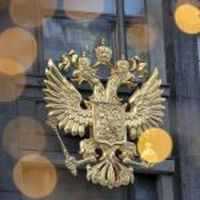As May 2025 approaches, a series of significant legislative changes are set to take effect in Russia, impacting various aspects of citizens' lives. These changes range from pension indexation to new regulations on consumer loans and personal data protection. According to Bankiros, these updates aim to address pressing social issues and enhance regulatory frameworks.
One of the most notable changes is the doubling of pensions for disabled individuals in the first group and citizens who turned 80 in April. Starting this month, the fixed payment for these categories will rise to 17,815 rubles. Additionally, participants of the Great Patriotic War (WWII) will receive a one-time payment of 80,000 rubles, alongside a separate 55,000 ruble payment for home front workers. This initiative reflects the government’s commitment to supporting its elderly and veteran population.
From May 1, a new law will recognize servicemen, law enforcement personnel, and volunteers who defended the Russian Federation from armed aggression as veterans of combat operations. This recognition is a significant step in acknowledging the sacrifices made by these individuals during times of conflict.
In a move to tighten regulations on foreign influence, the list of foreign agents will expand to include individuals who assist international organizations not recognized by Russia and those aiding foreign government agencies in activities that threaten national security. This change is expected to strengthen the government’s control over foreign influences within its borders.
Another important update is the revision of criteria for assigning children's benefits, which will be reviewed until May 15. The government plans to shorten the income assessment period from one year to three or six months, allowing families with slightly higher incomes than the subsistence minimum to qualify for assistance. This change aims to provide more support to families in need.
Beginning May 15, a "cooling period" for consumer loans will be introduced. Under this new regulation, borrowers will experience a mandatory waiting period before receiving funds. For loans ranging from 50,000 to 200,000 rubles, funds will be transferred four hours after signing the agreement, while loans exceeding this amount will take 48 hours. This measure is designed to protect borrowers from hasty decisions and potential fraud.
Moreover, starting May 9, credit histories will no longer include borrowers' places of birth, simplifying the data processing and enhancing personal data protection. Creditors will not be held accountable for this omission until the Central Bank updates its regulatory documents.
In terms of financial transactions, Russians will now face restrictions on money transfers without opening a bank account. Starting May 30, individuals can send no more than 100,000 rubles or its foreign currency equivalent using simplified identification methods. Previously, such transfers were limited to 15,000 rubles, indicating a tightening of regulations surrounding financial transactions.
Companies that experience data breaches will now face increased penalties, with fines reaching up to 15 million rubles for legal entities. Repeat offenders may incur fines of up to 3% of their annual revenue, reflecting a serious commitment to protecting citizens' personal information.
Additionally, a federal register of alimony debtors will be launched on May 25. This publicly accessible register will include individuals who have been criminally charged or are wanted for failing to pay alimony. Such transparency aims to improve the enforcement of financial responsibilities towards children and dependents.
In the realm of consumer goods, mandatory labeling will be introduced for various products, including snacks and household chemicals. Starting May 1, manufacturers will be required to register their products in the "Honest Sign" system, ensuring that consumers are informed about the goods they purchase.
New requirements will also be imposed on bloggers and online content creators, mandating that they register their economic activities under the All-Russian Classifier of Economic Activities (OKVED). This regulation aims to enhance transparency and accountability in the digital economy.
Furthermore, a new formula for calculating the utilization fee for vehicles imported from EAEU countries will take effect. This formula will consider not only the base rates but also the actual market value of the vehicle and the costs incurred during its acquisition. For vehicles not listed by the Ministry of Industry and Trade, the utilization fee will triple, potentially leading to a significant increase in vehicle prices.
As part of broader traffic regulations, fines for various offenses will also see an increase. For instance, running a red light will now result in a 2,500 ruble fine, up from 1,000 rubles, while driving into oncoming traffic will incur a 7,000 ruble penalty, along with the possibility of losing one’s driving license for up to six months.
In summary, these legislative changes reflect the government's ongoing efforts to adapt to the evolving needs of its citizens while ensuring a safer and more regulated environment. As these laws come into effect, it will be crucial for citizens to stay informed and understand how these changes may affect their daily lives.





